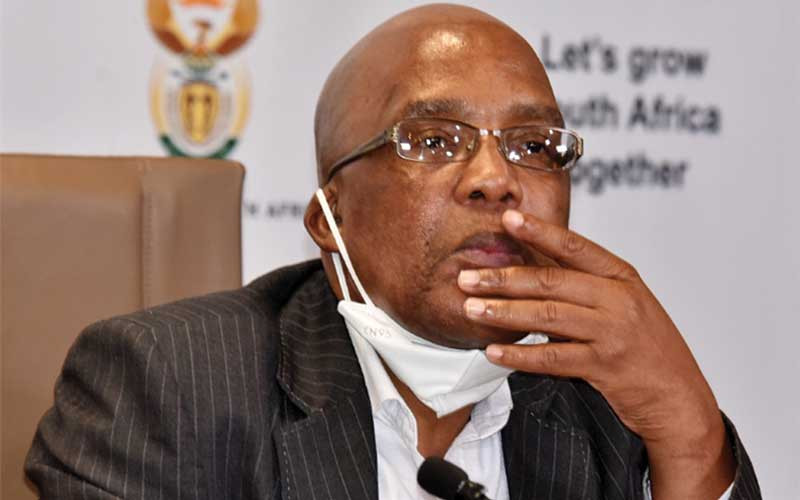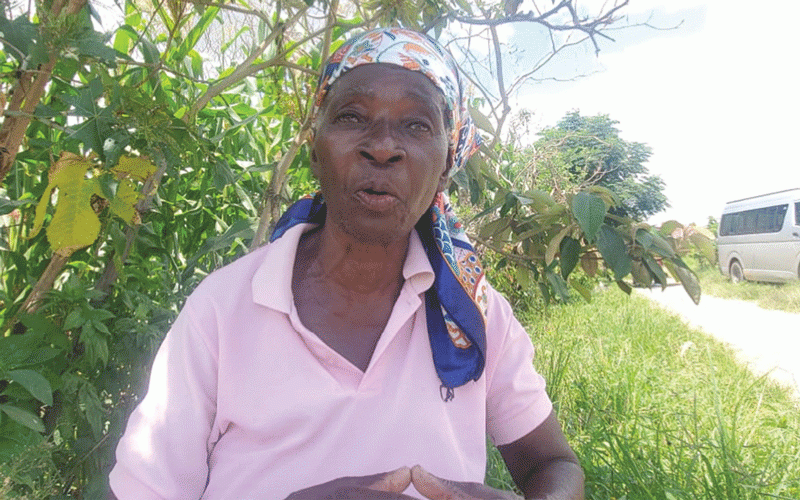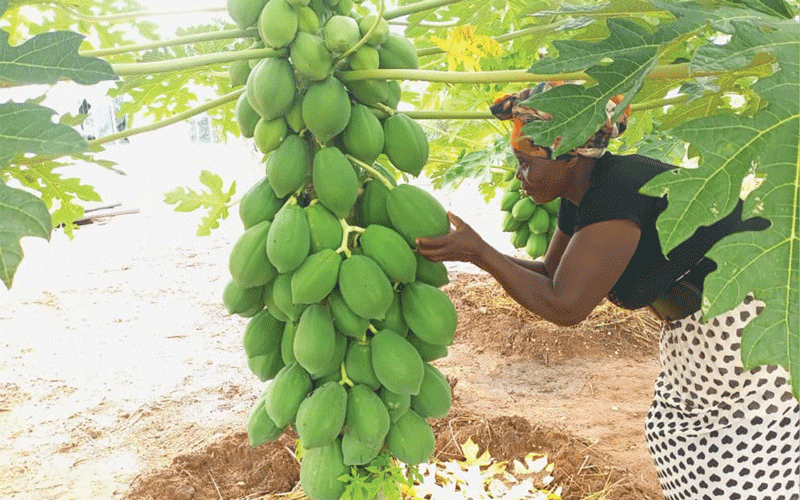
EMILY Machingauta (44), a Zimbabwe Exemption Permit (Zep) holder, has welcomed the decision by the government of South Africa to grant a two-year extension to Zimbabwean permit holders.
The waiver allows her and other Zep holders to work and study in South Africa until November 2025.
“This decision has given me a little bit of time to breathe and plan,” Machingauta said.
In a statement issued by the department of Home Affairs in South Africa, Home Affairs minister Aaron Motsoaledi said he was granting exemption to approximately 178 000 Zimbabwean nationals for a period of two years in terms of section 31 (2)(b) of the Immigration Act of 2002.
The statement revealed that 78 126 Zimbabwean nationals had applied for waivers and 10 427 applied for other visa regimes.
As such, the exemption afforded protection as they await the outcome of their applications, Motsoaledi said.
The extension comes as a temporary relief to Zep holders who were anxious after the permits were not extended in 2021.
Organisations such as the Helen Suzman Foundation and Zimbabwe Exemption Permit Holders Association took the Department of Home Affairs to court arguing that it was unlawful not to recognise the rights and dignity of permit holders.
- SA-based Zimbos appeal for legal fees
- An impassioned plea to the diaspora voter
- ZEP holders not keen on Zim return: Envoy
- ZEP holders breath sigh of relief following court decision to reserve judgment till further notice
Keep Reading
Since 2021, South Africa has been giving six-month to a year extension to enable ZEP holders to apply for other permit regimes and waivers.
Machingauta had her waiver approved and is in the process of applying for a general permit.
Apart from the strain this uncertainty has caused, as a general hand Machingauta is also concerned about the R3 255 she needs to pay when submitting her application for a general permit.
“Though at this stage I have been consulting others who have applied for this permit regime before me, there is no guarantee that your application will be approved,” Machingauta said.
“Further, I also need to pay for the cost of the medicals needed as part of the requirements of the general permit.”
Advocate Gabriel Shumba, the chairperson of the Zimbabwe Exiles Forum, said a waiver in terms of section 31 (2) (c) may be necessary where one does not meet some of the requirements for the mainstream permits as in the case of a General Work Visa one may not have the certificate from the Department of Labour.
Machingauta is also worried as she is struggling to meet her day-to-day needs as well as taking care of her family in Zimbabwe.
“While things are better here in South Africa, it is difficult for me to raise all this money and at the same time take care of my family back home [in Zimbabwe] as I am also the breadwinner,” she said.
Shumba lauded the reprieve saying it was a “welcome relief, further preventing job losses and uncertainty of savings in banks among others”.
“However, what is unfortunate is that the window of opportunity for those who wanted to migrate to waivers and mainstream permits was closed earlier than December 31, 2023, which had been earlier announced. In addition, the fact that there is now an added two-year extension does not dispense with the need to comply with the court decision as the two-year extension was made absent from the Zep holders,” Shumba said.
Experience of a Zep holder before the extension
Tarisai Magumire (42) was relieved when he managed to get the then special dispensation permits, which were accorded to Zimbabweans to regularise their stay in South Africa in 2009.
This opened doors, enabling him to get a better paying job and look after his three children.
“As a general hand here, I have been able to sustain myself and my family here in South Africa and provide for my parents back home in Zimbabwe,” he said.
However, the sudden turn of events in 2021 whereby the Department of Home Affairs made an announcement not to extend the Zep has left him between a rock and a hard place.
“For someone who has settled in South Africa, I have three kids who are schooling here. Changing schools and environments will affect them.”
He opined that, for someone who left Zimbabwe years ago, it is not going to be easy to resettle in Zimbabwe.
“It’s a matter of starting life all over again considering that I have not made any investments back home in Zimbabwe and my children have known no other place than South Africa”.
Magumire has since applied for a waiver and is awaiting approval to enable him to apply for a General Work visa.
“I am anxiously waiting for the waiver to be approved and hopeful of getting the general permit,” he said.
He has so far paid R1 550 for the waiver.
Nicole Fritz of the Helen Suzman Foundation applauded the Zep extension saying the decision recognises the dignity of the people, as stipulated in the Constitution of the country.
Speaking to African National Congress Youth chairperson for international relations, Kulekani Skosana, said there is need to investigate what policy changes can be made to provide a seamless co-existence between South Africans and Zimbabweans.
Zimbabwe Exemption Permits background
According to a statement issued by Motsoaledi on the granting of the Zep, “the issue of exemptions granted to Zimbabwean and other nationals started in 2008, when South Africa experienced an influx of asylum seekers from Southern African Development Community. Most of them were Zimbabwean nationals”.
In April 2009, South Africa established the Dispensation of the Zimbabwean Permit in a bid to regularise the status of thousands of Zimbabwean nationals who had fled political and economic instability in their country, mostly between 2007 and 2009.
The special exemption was reissued in 2014 and then again in 2017 as Zep. Furthermore, those applying for the Zep had to show they had the financial means to support themselves in South Africa and that they had no criminal record.
As a result, Zep holders are a population of law-abiding and economically active foreign nationals who have built lives in South Africa over the last 15 years after being forced to do so by the desperate conditions in Zimbabwe. It must be noted that some Zep holders have children who have known only one home: South Africa.
However, the permit holders are not entitled to apply for permanent residence status and that the new permits will not be renewable.
At the same time a permit holder cannot change their status in South Africa as well as register all their minor children born and staying in South Africa.
- This article is made possible by the African Union Media Fellowship programme, which is implemented by the African Union through the Information and Communication Directorate, supported by Deutsche Gesellschaft fur Internationale Zusammenarbeit (GIZ) on behalf of the Germany Federal Ministry for Economic Cooperation and Development. The views and opinions expressed are those of the author only and do not necessarily reflect those of the GIZ or the African Union.











